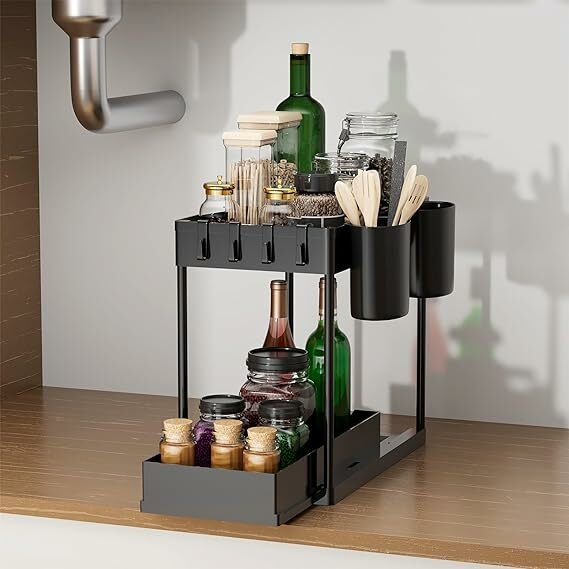When it comes to selling your home, pricing it correctly is crucial for a successful sale. Avoiding common pricing mistakes can help maximize your home’s market potential and ensure a smooth and profitable transaction. Check out the key factors to consider when pricing your home and get tips to help you avoid the most common mistakes that sellers make.
Key Takeaways:
- Pricing your home correctly is essential for a successful sale.
- Avoiding common pricing mistakes can maximize your home’s market potential.
- Consider key factors such as location, size, condition, and market conditions when determining the price.
- Striking a balance between fair market value and emotional attachment is important.
- Implement effective pricing strategies and work with experts to optimize your chances of selling quickly.
Understanding the Home Sale Pricing Process
Before listing your home for sale, it’s important to understand the pricing process. Conducting thorough research and performing a competitive pricing analysis are essential steps in determining the right price for your home. By understanding the market and analyzing comparable sales, you can set a competitive and attractive price that will generate interest from potential buyers.
Why Research Is Crucial Before Listing
Researching the local real estate market is crucial before listing your home for sale. It allows you to gain insight into current market trends, comparable sales in your area, and the pricing strategies of other sellers. Through research, you can gather valuable information that will help you make informed decisions when setting the price for your home.
Significance of a Competitive Pricing Analysis
A competitive pricing analysis is an important tool in determining the value of your home in comparison to similar properties in the market. By analyzing recently sold homes that are similar in location, size, condition, and amenities, you can identify a competitive price range for your property. This analysis enables you to position your home strategically in the market, attracting potential buyers and increasing the chances of a successful sale.
Key Factors That Influence Your Home’s Sale Price
When it comes to pricing your home for sale, it’s important to consider the key factors that can influence its sale price. By understanding these factors, you can make informed decisions and set a competitive price that reflects the value of your property.
Factors influencing home sale price:
- Location: The location of your property plays a significant role in determining its sale price. Factors such as proximity to amenities, schools, transportation, and desirable neighborhoods can impact the perceived value of your home.
- Size: The size of your home, including the number of bedrooms, bathrooms, and overall square footage, can affect its sale price. Larger homes generally command higher prices, while smaller homes may appeal to buyers looking for more affordable options.
- Condition: The overall condition of your home, including its age, maintenance, and any renovations or updates, can influence its sale price. Well-maintained and updated homes are often more attractive to buyers and may command a higher price.
- Amenities: The presence of desirable amenities, such as a swimming pool, a renovated kitchen, or a backyard, can increase the appeal and value of your home. These amenities can differentiate your property from others on the market and justify a higher sale price.
- Market Conditions: The state of the local real estate market, including supply and demand dynamics, can impact the sale price of your home. In a seller’s market where demand exceeds supply, you may have more leverage to price your home higher. In a buyer’s market with excess inventory, pricing competitively becomes crucial.
- Supply and Demand: The balance between the number of homes for sale and the number of buyers in the market can influence your home’s sale price. When there is high demand and limited supply, prices tend to increase. Conversely, when there is low demand and an abundance of inventory, prices may decrease.
- Overall Economic Climate: The broader economic conditions, including factors like interest rates, employment rates, and consumer confidence, can impact the sale price of your home. During a strong economy, buyers may be more willing to pay higher prices, while a weak economy may have the opposite effect.
To illustrate the importance of these factors, let’s take a look at the following table:
| Factor | Impact on Sale Price |
|---|---|
| Location | Positive: Desirable areas can increase value |
| Size | Positive: Larger homes often sell for more |
| Condition | Positive: Well-maintained homes attract higher offers |
| Amenities | Positive: Desirable features can justify a higher price |
| Market Conditions | Variable: Seller’s market may support higher prices |
| Supply and Demand | Variable: High demand can drive prices up |
| Overall Economic Climate | Variable: Strong economy may support higher prices |

By considering these key factors and analyzing the current market conditions, you can determine a competitive and attractive sale price for your home. This will help you attract potential buyers and increase the likelihood of a successful sale.
Pricing Your Home: Balancing Fair Market Value and Emotional Attachment
Pricing your home requires striking a balance between fair market value and emotional attachment. While it’s natural to have an emotional connection to your home, it’s important to objectively assess its market value to attract potential buyers. Overpricing your home based on emotional attachment can lead to longer days on the market and potential loss of value. Finding the right balance will help you achieve a timely sale at a price that reflects your home’s worth.
When pricing your home, it’s essential to consider both the objective market factors and your personal feelings towards the property. Here are some important points to keep in mind:
- Research comparable sales: Before setting a price, conduct thorough research on similar properties in your area that have recently sold. Look for properties with similar attributes such as size, location, and condition to get an idea of the fair market value.
- Seek professional guidance: Working with a real estate agent who has expertise in your local market can provide valuable insights and help you determine an accurate price for your home. They can consider the market conditions, demand, and other factors to guide you in pricing your home effectively.
- Consider the competition: Take into account the pricing of other properties currently on the market. This will help you position your home competitively and attract potential buyers.
- Be realistic: It’s important to set a price that reflects the condition and features of your home. While you may have emotional attachment, it’s crucial to consider the current market conditions and the expectations of potential buyers.
- Monitor market trends: Keep an eye on the real estate market in your area and be open to adjusting your price based on market conditions and buyer response. Being flexible can help you stay competitive and sell your home more efficiently.
Remember, finding the right balance between fair market value and emotional attachment is key to pricing your home effectively. By considering objective factors and seeking professional advice, you can attract potential buyers and increase the likelihood of a timely sale.
| Pros of Balancing Fair Market Value and Emotional Attachment | Cons of Overpricing Based on Emotional Attachment |
|---|---|
| – Attract potential buyers who are willing to pay a fair price | – Longer days on the market due to limited buyer interest |
| – Maximize the market potential of your home | – Potential loss of value if the home sits on the market for too long |
| – Increased likelihood of a smooth and profitable transaction | – Missed opportunities and potential buyers moving on to other properties |
Home Pricing Strategies for a Timely Sale
Implementing effective pricing strategies is crucial for a timely sale. Setting the right initial price is key to attract potential buyers and generate interest. However, it’s also important to monitor the market response and adjust the price accordingly. By staying flexible and responsive to market conditions, you can optimize your chances of selling your home quickly.
Setting the Right Initial Price
When pricing your home, it’s essential to set the right initial price. A well-priced home will catch the attention of buyers and create a sense of urgency. To determine the initial price, consider factors such as recent comparable sales in your area, the condition and features of your home, and current market trends. Consulting with a real estate expert can provide valuable insights to help you arrive at a competitive initial price.
Setting too high of an initial price can discourage potential buyers and lead to a prolonged listing period. On the other hand, setting the price too low may result in missed opportunities to maximize your home’s value. Finding the sweet spot requires finding a balance between attracting interest and ensuring a fair market value.
Adjusting the Price Based on Market Response
After listing your home, it’s important to monitor the market response and be prepared to adjust the price if needed. By analyzing the number of showings, offers, and feedback from potential buyers, you can gauge the effectiveness of your pricing strategy. If there is limited interest or if your home has been on the market for an extended period without offers, it may be necessary to reevaluate the price.
Adjusting the price based on market response can help reignite interest and attract new buyers. Your real estate agent can provide valuable guidance and market insights to support the decision-making process. By staying proactive and responsive, you can position your home competitively in the market and increase your chances of a timely sale.

| Benefits of Setting the Right Initial Price | Importance of Adjusting the Price Based on Market Response |
|---|---|
|
|
|
|
Marketing Your Home: High-Quality Imagery and Virtual Tours
When it comes to marketing your home, high-quality imagery and virtual tours are essential in attracting buyers. A powerful visual presentation can make a significant impact on potential buyers, enticing them to further explore your property. This section will discuss the essential role of professional photography and the benefits of adding 360-degree views and video tours to your listing.
Essential Role of Professional Photography
Professional photography plays a crucial role in showcasing your home’s best features and capturing the attention of potential buyers. High-quality images that are well-lit, properly composed, and edited professionally can make your property appear more desirable. Professional photographers have the expertise to highlight the unique aspects of your home, creating a positive first impression that can significantly increase buyer interest.
Adding 360-Degree Views and Video Tours
In addition to professional photography, offering potential buyers a virtual experience of your property through 360-degree views and video tours can be highly effective. These immersive features allow buyers to explore your home visually and get a feel for the space, even if they’re not physically present. Virtual tours provide an interactive and engaging experience, giving buyers the opportunity to navigate through different rooms and get a better understanding of the property’s layout and flow.
By incorporating high-quality imagery, 360-degree views, and video tours in your marketing strategy, you can attract more buyers and generate increased interest in your home. Remember, a visually appealing and comprehensive presentation can make a significant difference in capturing buyer attention and ultimately lead to a successful sale.
The Importance of Home Staging and De-cluttering
When it comes to selling your home, the importance of home staging and de-cluttering cannot be overstated. These two steps are crucial for creating an appealing and welcoming environment that attracts potential buyers.
Properly staging your home allows buyers to envision themselves living in the space. By arranging furniture, decor, and accessories in a way that highlights your home’s best features, you can create a visually appealing atmosphere that captures the attention of buyers.
Moreover, home staging helps to establish an emotional connection between buyers and the property. When potential buyers can imagine themselves living in the space and feel a positive emotional response, they are more likely to make an offer.
De-cluttering is another essential aspect of preparing your home for sale. Removing excess belongings and personal items creates a sense of spaciousness and allows buyers to focus on the potential of the home rather than being distracted by clutter.
By clearing out unnecessary items and organizing your space, you can help buyers see the full potential of each room. A clean and clutter-free home not only looks more appealing but also gives the impression of being well-maintained and cared for.
Remember, the goal is to create a neutral and inviting environment that appeals to a wide range of potential buyers. Home staging and de-cluttering are effective strategies to showcase your home’s best features, increase its market value, and ultimately sell your home quickly and at a desirable price.

Real Estate Pricing Tips: Working with an Expert
Choosing the Right Real Estate Agent
When it comes to pricing your home for sale, working with an expert can make a significant difference. A knowledgeable real estate agent who understands the local market can provide valuable insights and guidance throughout the pricing process. They have access to up-to-date market data, trends, and comparable sales in your area, which can help you set an accurate and competitive price.
Choosing the right real estate agent is crucial for a successful sale. Look for an agent with a strong track record, positive reviews, and expertise in your specific neighborhood or community. Interview multiple agents, asking questions about their marketing strategies, pricing recommendations, and negotiation skills. Don’t hesitate to ask for references or to check their credentials and licenses.
A good real estate agent will have excellent communication and negotiation skills, as well as a deep understanding of local buyer preferences and market dynamics. They will work closely with you to understand your needs and goals, and will provide valuable advice on pricing strategies.
Remember, your real estate agent will be your partner throughout the entire selling process, so it’s crucial to choose someone you trust and feel comfortable working with. A strong collaboration with a reputable agent can lead to a successful home sale at the right price.
Utilizing Home Sale Price Calculators and Tools
In addition to working with a real estate agent, you can utilize home sale price calculators and tools to get a better understanding of the potential sale price of your home. These tools use algorithms and data on recent sales in your area to estimate your home’s value.
Home sale price calculators typically take into account factors such as location, property size, number of bedrooms and bathrooms, and amenities. They can provide you with a ballpark figure or a range of prices to help you get started with your pricing strategy.
Keep in mind that while home sale price calculators can give you an estimate, they may not capture all the nuances and specifics of your property. They cannot replace the expertise and local market knowledge that a real estate agent brings to the table. However, they can serve as a useful starting point to help you understand the market and evaluate different pricing scenarios.
It’s important to note that home sale price calculators should be used as a reference tool and not as the sole basis for determining your home’s price. Ultimately, consulting with a real estate agent and considering their recommendations, along with market research and your own goals, will help you arrive at the best pricing decision for your home.
Negotiation Tactics and Flexibility in Home Pricing
In the process of selling your home, negotiation tactics and flexibility in home pricing are crucial elements that can greatly impact the success of your sale. By being open to negotiating with potential buyers and considering different offers, you can work towards achieving a mutually beneficial agreement.
Flexibility in pricing is also key to attracting more buyers and increasing the likelihood of a successful sale. By adjusting your pricing strategy based on market conditions and buyer feedback, you can adapt to the ever-changing real estate landscape and maximize your chances of selling your home quickly and at a favorable price.

The Art of Negotiation
When it comes to negotiation, it’s important to approach the process with a strategic mindset. Consider employing the following tactics to navigate the negotiation process effectively:
- 1. Do Your Research: Before entering negotiations, research the local market and recent sales data to gather valuable insights. This knowledge will give you a better understanding of the fair market value of your home and empower you during negotiations.
- 2. Set Priorities: Determine your priorities and non-negotiables before entering negotiations. This will help you stay focused on your goals and make informed decisions throughout the process.
- 3. Practice Active Listening: Listen attentively to the concerns and preferences of potential buyers. Understanding their needs can help you tailor your negotiation strategy and find common ground.
- 4. Explore Creative Solutions: If there are areas of disagreement, think creatively and propose alternative solutions that could satisfy both parties. Being open to compromise can help facilitate a smoother negotiation process.
The Power of Flexibility
Flexibility in home pricing can significantly impact the success of your sale. Consider the following strategies to increase flexibility:
- 1. Price Adjustments: Regularly monitor the market and be willing to adjust your asking price if necessary. By staying aware of market trends and buyer activity, you can respond proactively and attract potential buyers.
- 2. Incentives: Consider offering incentives, such as covering closing costs or including certain appliances, to make your home more attractive to potential buyers. These incentives can provide an added level of flexibility in negotiations.
- 3. Collaborate with Your Real Estate Agent: Work closely with your real estate agent to develop a pricing strategy that accounts for flexibility. Their expertise and knowledge of the local market can help guide your pricing decisions.
Remember, negotiation tactics and flexibility in home pricing can be powerful tools in achieving a successful sale. By employing effective negotiation strategies and staying flexible in your pricing approach, you can navigate the selling process with confidence and increase your chances of a favorable outcome.
Avoiding Overpricing: The Pitfalls of Inflated Expectations
Overpricing your home can have negative consequences and hinder the sale process. It can deter potential buyers who may perceive your home as overpriced and move on to other options. Additionally, long market listings can create a perception of a stagnant or undesirable property. Avoiding overpricing pitfalls is crucial for attracting buyers and achieving a timely sale.
Impact of Overpricing on Buyer Interest
When you overprice your home, you risk alienating potential buyers. Buyers are usually well-informed and do their research before making an offer. If your home is priced higher than comparable properties in the market, it may be immediately dismissed by buyers seeking better value. Overpricing can significantly reduce buyer interest, leading to fewer showings, offers, and ultimately, a prolonged time on the market.
Downsides to Long Market Listings
Long market listings can create a negative perception of your property. As your home remains on the market for an extended period, potential buyers may wonder why it has not yet sold. They may assume that there are issues with the property or that it is not desirable. The longer your home stays on the market, the more buyers may question its value, leading to decreased interest and fewer offers. Long market listings can also lead to price reductions and potentially selling below market value.
To avoid these downsides, it is crucial to set an accurate and competitive price for your home from the beginning. Conduct thorough research, consider market conditions, and consult with a real estate expert to ensure your home is priced correctly. By avoiding overpricing, you can attract more buyers, generate greater interest, and increase your chances of achieving a timely and successful sale.
Conclusion
Properly pricing your home is essential for a successful and profitable sale. By avoiding common pricing mistakes, understanding the market, and implementing effective strategies, you can optimize your chances of selling your home quickly and at the right price.
When pricing your home, be sure to seek expert advice from a real estate agent who has a deep understanding of the local market. Their knowledge and experience can help you set an accurate and competitive price that reflects the true value of your property.
Stay flexible throughout the selling process and consider market conditions. As buyers’ preferences and market trends can change, adjust your pricing strategy accordingly. By staying informed and continuously assessing your pricing approach, you can make the necessary adjustments to attract potential buyers and achieve a timely sale.
Remember, pricing your home is a crucial decision that requires careful consideration. Take the time to research, analyze comparable sales, and objectively assess your home’s worth. By doing so, you’ll have a better understanding of your property’s market potential and be able to position it effectively in the real estate market.
FAQ
What are some common mistakes to avoid when pricing my home for sale?
Some common mistakes to avoid when pricing your home for sale include overpricing based on emotional attachment, underestimating market value, and failing to monitor market response and adjust the price accordingly.
Why is research crucial before listing my home for sale?
Research is crucial before listing your home for sale as it helps you understand the market, analyze comparable sales, and set a competitive and attractive price that will generate interest from potential buyers.
Why is a competitive pricing analysis significant when selling my home?
Performing a competitive pricing analysis allows you to assess the prices of similar properties in your area and determine a price range that will make your home competitive in the market. This analysis helps you set the right price to attract potential buyers.
What factors can influence the sale price of my home?
Several factors can influence the sale price of your home, including its location, size, condition, amenities, market conditions, supply and demand, and the overall economic climate.
How do I balance fair market value and emotional attachment when pricing my home?
Balancing fair market value and emotional attachment requires objectively assessing your home’s market value. While it’s natural to have an emotional connection to your home, setting an accurate and competitive price will attract potential buyers and increase the likelihood of a successful sale.
What are some home pricing strategies for a timely sale?
Some home pricing strategies for a timely sale include setting the right initial price to attract buyers, monitoring market response, and adjusting the price accordingly. Staying flexible and responsive to market conditions helps optimize your chances of selling your home quickly.
How can high-quality imagery and virtual tours help in marketing my home?
High-quality imagery, such as professional photography, enhances the visual appeal of your home and creates a positive first impression for potential buyers. Adding 360-degree views and video tours provides buyers with a virtual experience, increasing their interest and engagement.
Why is home staging and de-cluttering important when selling my home?
Home staging and de-cluttering are essential steps to showcase your home’s best features and create a welcoming environment for potential buyers. Properly staging your home helps buyers envision themselves living in the space, while de-cluttering creates a sense of spaciousness and allows buyers to focus on the potential of the home.
How can working with a real estate expert help in pricing my home?
Working with a real estate expert who has a deep understanding of the local market can provide valuable insights and guidance in setting an accurate and competitive price for your home. Additionally, utilizing home sale price calculators and tools can provide you with an estimated sale price based on market trends and comparable sales.
What negotiation tactics and flexibility should I consider in home pricing?
Being open to negotiating with potential buyers and considering different offers can help you achieve a mutually beneficial agreement. Flexibility in pricing can also attract more buyers and increase the likelihood of a successful sale.
What are the pitfalls of overpricing my home?
Overpricing your home can deter potential buyers who may perceive your home as overpriced and choose to look for other options. Long market listings can create a perception of a stagnant or undesirable property, reducing buyer interest and decreasing the chances of a timely sale.









